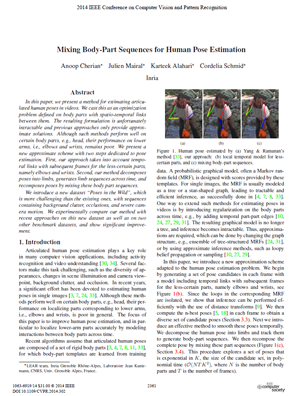Seminar on Current Works in Computer Vision
Prof. Thomas BroxComputer Vision is a very active research field with many practical applications, for instance in quality control, robotics, or driver assistance systems. The goal of Computer Vision is to imitate the flexibility and robustness of the human visual system. Research has made significant progress in recent years particularly due to deep learning. Almost all research in Computer Vision has shifted to deep learning based methods.
In this seminar we will take a detailed look at some of the most interesting recent works. For each paper there will be one person, who performs a more detailed investigation of a research paper and its background and who will give a presentation. The presentation is followed by a discussion with all participants about the merits and limitations of the respective paper. You will learn to read and understand contemporary research papers, to give a good oral presentation, to ask questions, and to openly discuss a research problem.
New information:
This seminar was supposed to be in presence. Due to new rules and the new Omicron variant, we will have at least the first session online and discuss there how to proceed. You should have received an email from Maria with the passcode for the Zoom meeting.
|

|
Material:
Giving a good presentationProper scientific behavior
Slides of the introductory lecture
Powerpoint template for your presentation (optional)
Papers:
| Date | Paper | Questions | Presenting student | Slides | Advisor |
| 10.01 | Network architectures | Questions | Madhu Basavanna | Sudhanshu Mittal | |
| 17.01 | Self-supervised transformers | Questions | Huy Hoang Dang | Slides | David Hoffmann |
| 24.01 | Self-supervised representation learning | Questions | Johannes Dienert | Slides | Yassine Marrakchi |
| 31.01 | Unsupervised segmentation | Questions | Tom Wellinger | Philipp Schröppel | |
| 07.02 | Open set recognition | Questions | Abhijeet Nayak | Silvio Galesso | |


